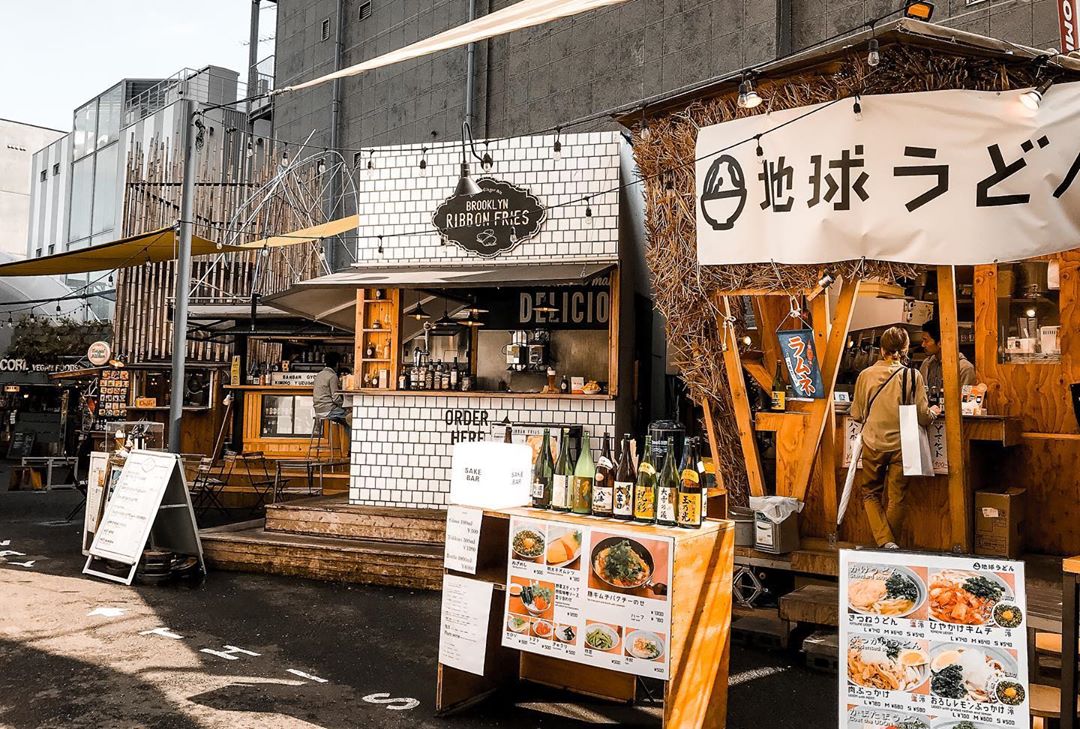Japan’s culinary scene is well-documented – from ramen to sushi, you could say it’s one of the world’s top export of food culture – certainly one of the most well-loved.
Whether it’s world-class Michelin omakase restaurants to ramen stalwarts, good food is nearly a guarantee all across the country. Of course, even Japan isn’t spared from food fads. Undercurrents are brewing and a form of dining in Japan is slowly seeing a revitalisation of sorts, a product that truthfully has more historical ties to America than in Japanese culture.
The food truck scene is quietly gaining traction today in Japanese society, which is unexpected, considering the public image that food trucks had in Japan. The original versions closest to the modern food trucks we know were called yatai and truthfully weren’t viewed favourably in society.
Mellow, a food and technology start-up in Japan, is trying to build and grow the nascent food truck scene, and even its co-founder Takuya Moriguchi acknowledged that yatais were once seen to be “dirty, dangerous, and unknown”.
In Tokyo, with the support of Mellow and others, there seems to be the stirrings of a food truck revolution, with a bunch of food truck parks or villages that are popping up. The best point of comparison would be the popular SoMa StrEat Food Park in San Francisco, serving up a medley of different cuisines.
In America, food trucks are part of the fabric of society, with its history going back to the 19th century, so its popularity is given especially when there is an incredible diversity of culinary cuisines and culture in the US.
In Japan, ironically, part of the food trucks’ not so glamourous reputation of the past was because of its mobility. These food trucks would open for a period of time and leave thereafter, resulting in a lack of imprint in the minds of diners.
With a fixed place and schedule, it has perhaps given this new burgeoning food truck scene a sense of stability, and with that, slowly gaining people’s attention and love.
Yurachuko Tokyo International Forum Village
During lunchtime on weekdays, the Yurachuko Tokyo International Forum Village plays host to a regular bevvy of food trucks that open their doors serving up a collection of food from all around the world.
Considering the location where this food truck park resides, it’s not all that surprising to find the food options offered are rather international. From taco rice (interestingly popular in Okinawa) and pizzas to a Hawaiian coffee truck, you’ll find some of the most varied cuisines gathered in one spot.
The International Forum Village also has what many regard as a legendary food truck across Japan. Tokyo Paella, the best paella food truck in Japan as some call it, has cultivated a loyal following and don’t be surprised to see snaking queues for their tapas and paellas.
Commune 2nd
Or perhaps you would take a gander at Commune 2nd in Aoyama in the Shibuya district, with its collection of food trucks becoming wildly popular amongst the youth.
Truth be told, Commune 2nd is a little of a microcosm of the Japanese’s attitudes towards food trucks. The Commune 2nd moniker is this food truck park’s third iteration, with its predecessors’ longevity in the food scene constantly coming under question.
Those suspicions, however, are slowly being thrown out of the window with the laidback, chill hipster vibes of Commune 2nd drawing in noticeable crowds. Think plastic stool and crates for chairs, wooden plans and foldout tables highlight by tasty grub and craft beers.
The famous Brooklyn Ribbon Fries hailing from America can also be found here with plenty of vegan trucks as well so be sure to go with an empty stomach!
Farmer’s Market at United Nations University
The Farmer’s Market at the United Nations University is not an exclusive food truck park, but there are a few regular food trucks that attend the farmer’s market making it quite a compelling food truck scene.
The Farmer’s Market is actually part of a movement to encourage consumption of local organic food. Craving an alternative to Starbucks? Tiki Coffee offers up a robust range that consists of americano, lattes, and flat whites. You can even smell the roast of the coffee wafting from the bank of the van, which will surely pull you in.
Kome Shiru Na is also a popular meat truck serving up smoked pork originating from Shirokawa in the Ehime prefecture, bacon, soft boiled eggs, and garlic rice balls. This and a cup of coffee from Tiki, considered me sold.
With a growing dynamic and diversified food truck scene in Tokyo, it could perhaps be the model for this culinary appetite to be exported to various cities across Japan. It wouldn’t be all too surprising for Osaka, long considered the food mecca of Japan, to have a food truck park that rivals that of Tokyo.
Will such meals on wheels ever have a steady presence in Japanese society? I certainly hope so, if not for a variation on dining – which it is no doubt as a form of fuss-free dining without skimping on the quality – food trucks represent much more.
The food you’d typically push the boundaries of flavour, they are innovative, and an art in themselves. Simply put, they are a stark contrast to the attitude of Japanese culinary tradition, one that is serious and highly detailed.
The unrestrained nature and flair of food trucks is a nice welcome change, and perhaps even needed to liven up the Japanese culinary scene.




